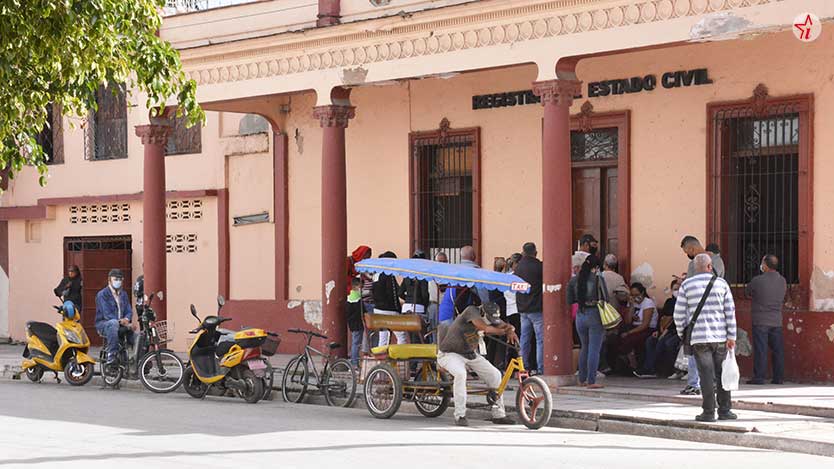
If we said that the blackouts have not turned our lives upside down in recent months, we would be lying. We walk around late at night and pending the clock or the cell phone screen to calculate the "times of light" and, then, cook, wash, sleep, watch over the children's homework and even fan them so that they can rest what we cannot.
The descriptions will be more or less exact, however, they will coincide on one point: we have continued living, changing, searching, renewing and doing, because, after all, that is what day to day is about. The other side of that reality would be the static, the inorganic, the less practical and functional, and the lack of will to transform, even though the current context forces us to rethink alternatives from any point of view.
That is the opposite and steep route, which many paperwork offices and sites for providing services to the population travel today, where blackouts have also become an excuse to do less.
It cannot happen that, after a morning without attending to anyone due to lack of electricity ─and faced with a queue that grows, as well as discomfort─, at 12:00 noon the Civil Registry office closes its doors for lunch and reopen them at 1:00 in the afternoon, after having wasted one of the three hours in which they will have power.
Nor should it happen that, in the Municipal Directorate of Labor and Social Security, in the main city, the delivery of projects for the application of patents for the non-state sector depends on an electronic platform that, between delays and flashes, makes it take up to three months the collection of documentation.
The freely convertible currency stores or the banks are located along the same lines, because when there is no generator set or the fuel fails to start it, their workers work a fixed day in terms of hours, but sterile in terms of functions: they neither sell nor serve customers, the many customers who, day after day, crowd the outskirts impatient for a service that can only be obtained there.
Those who have heard before "only she does that procedure", "we have only one computer available", "there is only one box working", "without power I cannot print the model", can only agree with me or, even, improve the history with the experiences lived in own flesh.
The truth is that the planning of blackouts is not usually exact, but it would not be idle for the administrations to be proactive and decide based on it, for example, not to start at 8:00 in the morning if there will be no electricity, nor to finish at 5:00 in the afternoon in case there is.
Establishing work shifts and guaranteeing optimal use of time with electricity could alleviate queues and pending, although to achieve this it may be necessary to complete templates or relocate workers to speed up processes, have more computer resources at hand, print with advance some model or essential form and a long etcetera of foreseeable matters, if what you want is to work well.
In the long run, blackouts are a pretext for limiting the provision of a service to the delivery of shifts through telephones, most of the time busy, and for disorder and mistreatment to seem normal and even justified.
It is clear that we will not come out of the difficult electro-energy situation that the country is experiencing today by magic and, it seems, it will not be fast either; then, it is worth asking if we will leave life on pause for that and if it will not change the way services are provided and how we relate to public administration.




